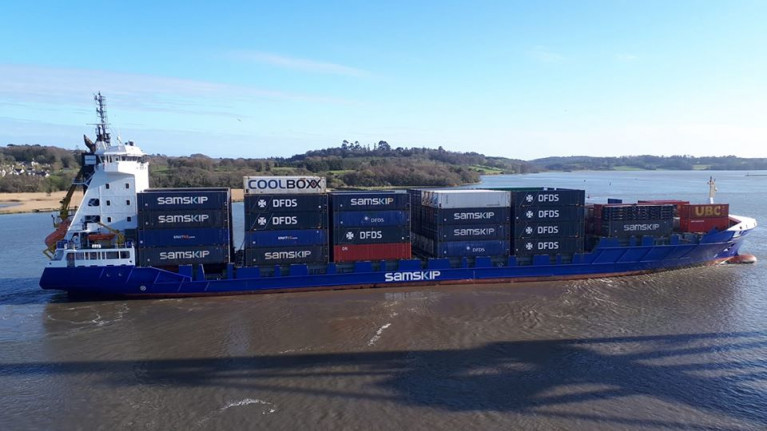Displaying items by tag: Biofuel blend
Ireland-Europe BioFuel Containership Samskip Endeavour Makes Greener Future
Samskip a global logistics operator, has accelerated in expanding usage of biofuels in its shipping fleet, among them the 800TEU container vessel Samskip Endeavour which operates Amsterdam-Dublin, with the ship observed by Afloat taking anchorage in Dublin Bay this afternoon.
Initially starting with a 50% biofuel blend in the first half 2021 and switching to 100% biofuel after the summer period, the Samskip Endeavour was able to achieve a CO2 saving of 12.000 tons in 2021.
According to the Dutch operator based in Rotterdam, the ship has achieved a saving of more than 70% of CO2 emission when compared to traditional fuels. This translates into unburdening 200.000 trees from absorbing these emissions from the atmosphere over the course of ten years.
‘’Reducing fuel emissions and consumption is a critical next step for the maritime transport industry, so we are incredibly proud to lead this transition and to offer our customers a sustainable solution. Our efforts to provide green and clean shipping will only increase in the coming months and years,’’ says Ólafur Orri Ólafsson, Head of Sustainable Development at Samskip.
In 2018, the Samskip Endeavour was the first ever vessel to be biofuel-bunkered by the company’s longtime partner GoodShipping. These biofuels, which find their origin from fossil-free sustainable waste streams, have proved to be a successful substitute for conventional marine fuels, and can be used without making any modifications to the vessel’s engine.
Samskip was originally founded in Iceland in 1990 and since then has consistently grown by also offering transport and related services by land, rail and air. They have offices in Europe, North America, Africa, Asia and Australia.





























































